-
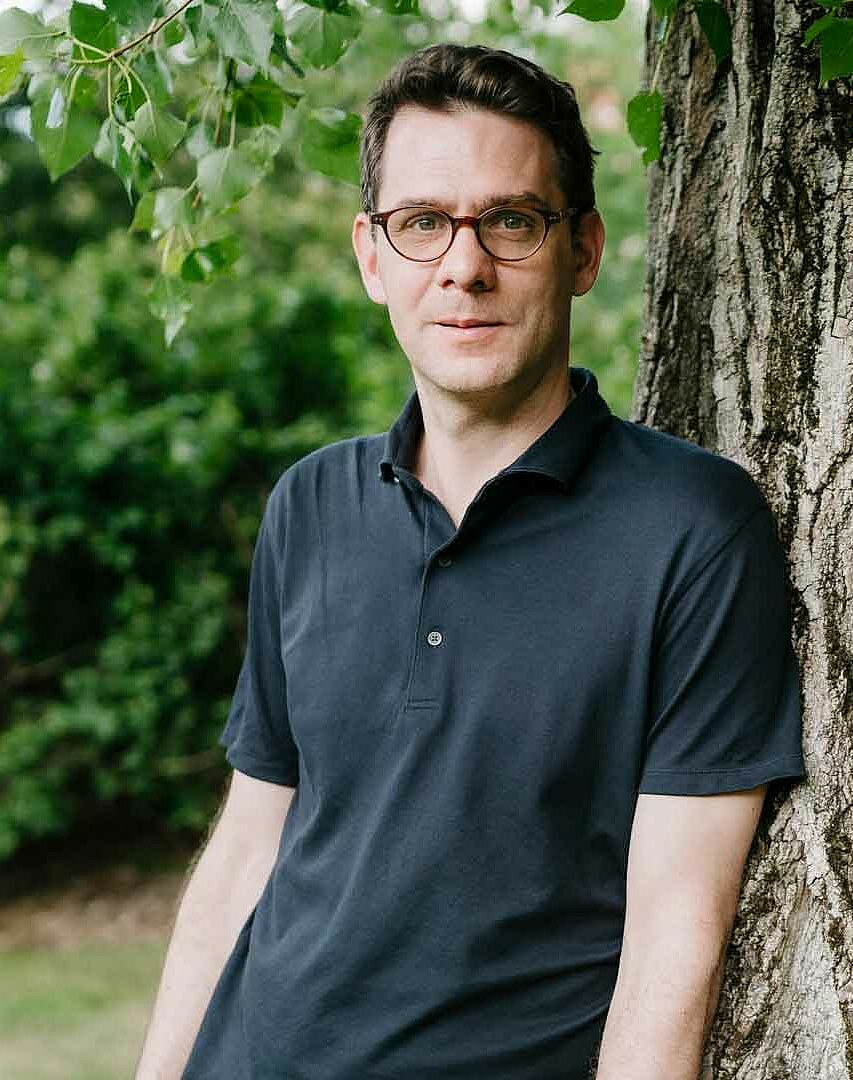
Credit: Alexander Rentsch/HTW Berlin
11.05.2021“Increasing Urbanisation also Creates Opportunities”
What role do new technologies and social innovations play in urban development? And what may be the positive and negative effects of this? As professor in Real Estate Industry, Urban Development and Smart Cities at the HTW Berlin - University of Applied Sciences, Brain City Ambassador Dr. Florian Koch brings together science, business and civil society in his research. His projects are tangible examples of the effective transfer of scientific knowledge in the Brain City Berlin.
Professor Koch, what can knowledge transfer - the exchange of knowledge between science and society - achieve in the context of sustainable urban development?
Many different stakeholders play a role in urban development: city administration and city politics, companies, associations, citizens and also science. Science can, for example, help develop new technologies and concepts for urban sustainability. Knowledge transfer is important so that these ideas aren’t just discussed at academic conferences and in journals but can also make a concrete practical contribution. At the same time, research on sustainable urban development has no function in isolation from social developments in a sterile laboratory, but involves exchanging ideas and discussions with lots of stakeholders – almost as a contact sport as the famous climate researcher Stephen Schneider once called it in another context.
What are the objectives of your research?
I would like to understand which role new technologies and forms of social innovation play in urban development and what the positive and negative effects of these are. From a normative perspective, the question arises in how far a Smart City approach can contribute to a sustainable development in the sense of the United Nations’ Sustainable Development Goals (SDGs). “Smart City” is therefore not the goal of urban development but should be seen as a method that helps to make cities socially and ecologically more sustainable.
As part of a project, you conducted interviews with experts back in 2019, to determine the framework conditions for successful Smart City projects. What were your findings?
As part of the study which we conducted jointly with the corporate law firm Noerr, we asked companies and city administrations. It was interesting that most of the respondents did not identify the technological aspects as a challenge for Smart City projects, but the legal, economical and social issues.
Could you be more specific?
In practice, there are already a multitude of prototype applications for Smart City technologies, which mostly work quite well. But to implement these on a large scale, the framework conditions need to be adjusted. Often, for example, the appropriate legal provisions do not yet exist or the question of funding is unresolved. Another result from this study: More and more companies are looking at Smart City approaches – even if it is often not clearly defined what exactly they mean by this. The range of issues spans from mobility to safety and neighbourhood development all the way to e-government.
What can a city like Berlin achieve with smart and sustainable development?
I think that urban development should be closer oriented to the 17 SDGs ratified by the United Nations in 2017. It’s the ultimate intention of the agenda to find synergies between the individual sustainability goals. The measures for improved education, for example, as stipulated in SDG 4, can also promote the gender equality goals mentioned in SDG 5 and health care (SDG 3). Climate protection measures of SDG 13, such as the creation of what is called ‘pocket parks’, can lead to a higher urban quality of life, as as envisaged in SDG 11. This can be observed quite well in times of Covid-19. Unfortunately however, Berlin currently lags behind other cities when it comes to the implementation of the Sustainable Development Goals.
One of the great advantages is that Berlin itself is an exciting object of study, offering a range of research topics. At the same time, there are a great number of institutions here dealing with various issues of urban research.
Are there already best practice examples in Berlin?
I find the developments on the area of the former Tegel airport very interesting. Here they attempt to combine sustainability and digitalisation. The EURREF campus Berlin is another example for future-oriented city and neighbourhood development. And maybe something like that can also be achieved for the HTW campus in Oberschöneweide.
In Treptow-Köpenick you are scientifically supervising a project which is dealing with the implementation of the SDGs in the district. Could you give us a quick overview?
The district is currently drawing up a new sustainability strategy and is following the United Nations’ SDG as a guideline. As part of two research projects, we have developed a monitoring system which can be used to measure the district's progress towards greater sustainability.
What are your main findings?
Besides general indicators for measuring environmental and social sustainability in Treptow-Köpenick, such as CO2 emissions or the proportion of unemployed, it has become apparent that specific indicators such as the proportion of microplastics in the Müggelsee or the use of cargo bicycles in the district should also be taken into account. We also noticed that we do not only need public statistics to measure sustainability but other data sources, too. Therefore, the cooperation with the civic society, for example with clubs and initiatives, is very important for the monitoring system.
Which problems are generally created by the increasing urbanisation worldwide?
I think that the increasing urbanisation should not just be seen as a problem but also as an opportunity. Of course there are challenges caused by urbanisation: Homes and infrastructure need to be built, work and mobility opportunities have to be created. And all this in the context of global environmental and climate change. But the increasing urbanisation offers opportunities, too: Sustainable traffic concepts can only work in densely populated areas, the land use per person is much lower in cities and the access to education and professional qualification is much easier in urban areas. This means we need cities for a sustainable development worldwide. And we should give a lot of thought to new, sustainable concepts of urban development.
You’re researching sharing solutions in socially mixed areas in the ongoing cross-city research project “Stadt teilen” (Sharing the City). Is sharing space a key to future urban development?
As part of the research project, two of the areas that we’re looking at are Wrangelkiez and Reichenberger Kiez in the Friedrichshain-Kreuzberg borough. These areas have experienced high levels of urban renewal and gentrification in recent years. Public spaces for the community are becoming increasingly scarce. We’re analysing the potential of sharing public and semi-public spaces, for example the temporary use of parking spaces as a play area or the use of empty shops for exhibitions. Especially in densely built-up inner-city areas, a new approach to public space is promising and can be seen as a countermovement to privatisation of the city.
What partners from science, business and civil society do you work together with in Berlin?
With some state-owned housing companies, the Treptow-Köpenick Borough Office, the Smart City department of Deutsche Bahn, the CityLAB of the Technology Foundation Berlin and the Wrangelkiez family centre.
What advantages does the Brain City Berlin offer you as an (urban) scientist?
One of the great advantages is that the city itself is an exciting object of study, offering a range of research topics. At the same time, there are a great number of institutions here dealing with various issues of urban research; there are lots of opportunities to cooperate and exchange ideas and plenty of exciting conferences. The proximity to politics and associations is also an advantage of Berlin as a location, as you can get really close to discussion and decision-making processes. (vdo)
Further Information
- Florian Koch/Kerstin Krellenberg: „Nachhaltige Stadtentwicklung. Die Umsetzung der Sustainable Development Goals auf kommunaler Ebene“, Springer VS (2021)
- Survey_ „Smart Cities. Erfolgsfaktoren, Rahmenbedingungen und Herausforderungen für Geschäftsmodelle in der Stadt der Zukunft“
- Report on the municipal sustainability strategy in Treptow-Köpenick
- „Stadt teilen: Öffentlicher Raum und Wohnen als neue Gemeingüter in sozial gemischten Nachbarschaften“
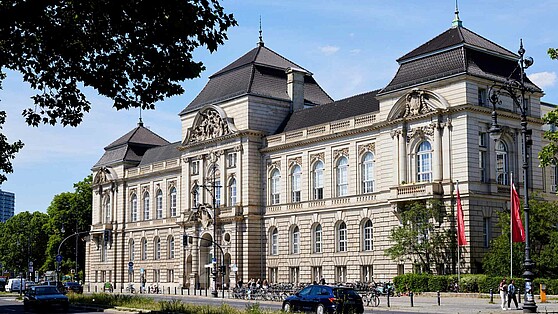
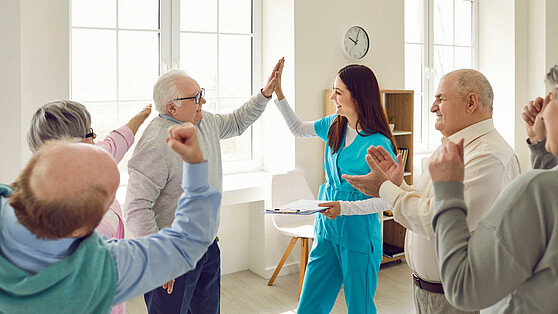

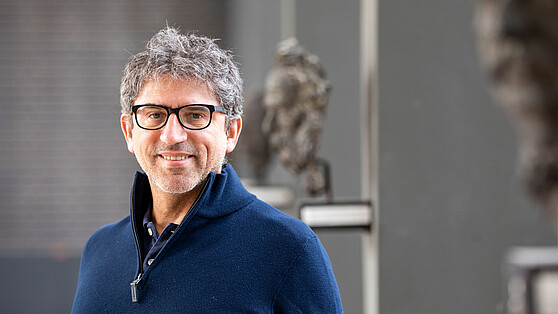
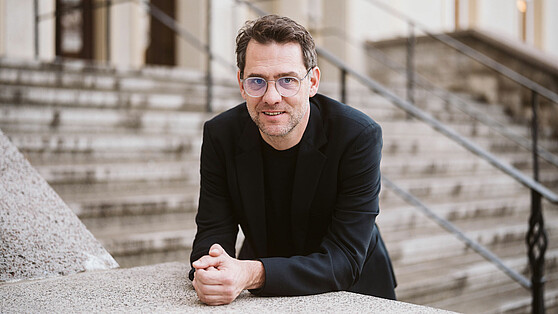




































































































![[Translate to English:] [Translate to English:]](/fileadmin/_processed_/9/d/csm_bwasihun-vdo_558x314_c0d384ce60.jpg)
![[Translate to English:] Berlin University Alliance/Matthias Heyde [Translate to English:]](/fileadmin/_processed_/5/a/csm_Berlin_University_Alliance_Matthias_Heyde-558x314_4bc591ca3c.jpg)
![[Translate to English:] David Ausserhofer/IGB [Translate to English:]](/fileadmin/_processed_/6/f/csm_Hupfer__Michael_____R__David_Ausserhofer_588x314_6fef164e57.jpg)
![[Translate to English:] Helena Lopes / Unsplash [Translate to English:]](/fileadmin/_processed_/b/6/csm_helena-lopes-1338810-unsplash_558x314_857802ad2f.jpg)
![[Translate to English:] HZB/M. Setzpfandt [Translate to English:]](/fileadmin/_processed_/f/a/csm_LNDW_HZB_558x314_e1e3500ed5.jpg)
![[Translate to English:] Tim Landgraf [Translate to English:]](/fileadmin/_processed_/0/7/csm_Car2CarEnergySharing_Tim_Landgraf_558x314_485bf716e9.jpg)
![[Translate to English:] [Translate to English:]](/fileadmin/_processed_/b/6/csm_Open-Access_Berlin-Partner_Wu__stenhagen_558x314_dd0c6e714d.jpg)
![[Translate to English:] Thomas Rosenthal - Museum für Naturkunde Berlin [Translate to English:]](/fileadmin/_processed_/6/d/csm_Museum_fu___er_Naturkunde_Berlin_Thomas_Rosenthal_f11b8ba056.jpg)
![[Translate to English:] [Translate to English:]](/fileadmin/_processed_/f/c/csm_TU_Berlin_Cem_Avsar_558x314_4b07bcb055.jpg)